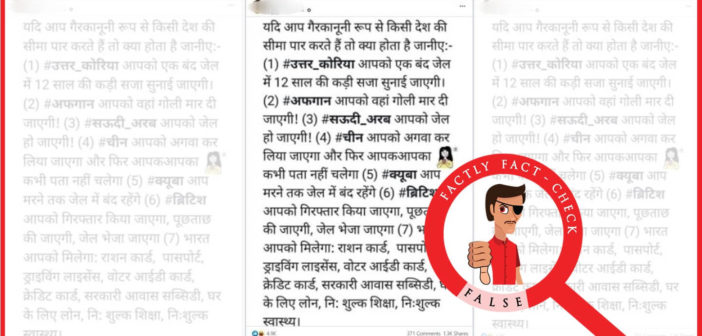A social media post comparing the penal provisions being implemented against illegal migrants in different countries with that of India is being widely circulated. In the attempt to list the penal consequences being rendered against illegal migrants in different countries, the post alleges that in India, illegal migrants are left scot-free without being penalised. Further, it claims that in India illegal migrants are being provided with all the required identity proofs, etc. Through this article let’s fact-check the claim made in the post.
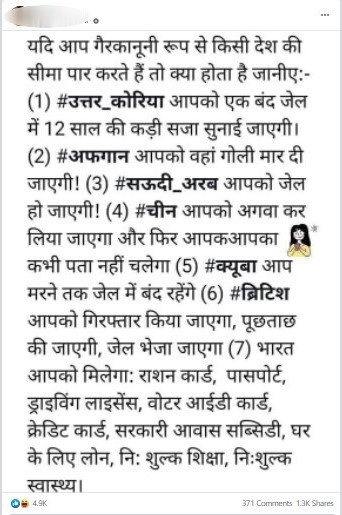
Claim: There are no penal provisions in place against illegal migrants in India.
Fact: Legislations namely Foreigners Act, 1946 and The Passport (Entry into India) Act, 1920 and subsequent rules framed under this act like Foreigners (Tribunals) Order, 1964 deal with illegal migrants entering into the country. These legislations also facilitate penal consequences against those who illegally entered or staying even after the expiry of visa. And there are also reports of authorities detaining and deporting illegal migrants under the provisions of these legislations. Hence the claim made in the post is FALSE.
Foreigners Act, 1946 and The Passport (Entry into India) Act, 1920 along with subsequent rules and orders framed in line with these legislations like Foreigners (Tribunals) Order, 1964 are some of the legal frameworks which deal with illegal migrants in the country.
While these legislations provide entrance for persons with valid documents like passports, in the case of illegal migrants without possession of valid documents, these legislations advocate for penal consequences. Details related to the penal provisions against the illegal migrants entering the country, framed under these legislations are discussed below.
The Passport (Entry into India) Act, 1920 :
It is one of the earliest legislation framed to deal with illegal migrants entering the country. This act empowers the central government to make rules requiring that person entering India to be in possession of a passport.
Further, the Act provides for penal consequences for actions against any rules framed under this act. Moreover, it grants the government the power to remove from India any person who entered without a passport.
Foreigners Act, 1946 :
This act replaced the initial Foreigners Act, 1940 conferring the government with wide powers to deal with the foreigners. The Act empowers the government in making provisions for prohibiting, regulating, or restricting the entry of foreigners into India.
Further, the act provides penal consequences like imprisonment and fines, etc. in case of contravention of any provisions of the act. Moreover, the concept of burden of proof lies with the person and not with the authorities was introduced by this act.
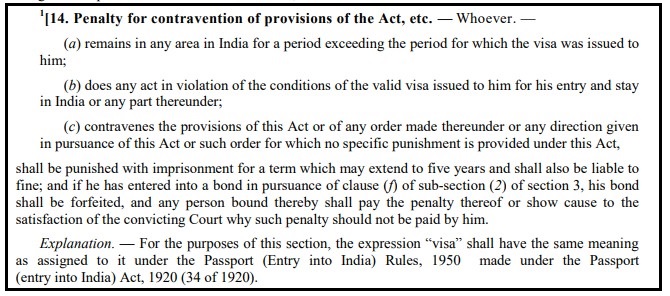
Foreigners (Tribunals) Order, 1964 :
The Foreigners (Tribunals) Order, 1964 was framed under Section 3 of The Foreigners Act, 1946. These tribunals are empowered to decide whether a person staying illegally in India is a foreigner or not. In dealing with the appeals, these tribunals are empowered with powers similar to those of a civil court.
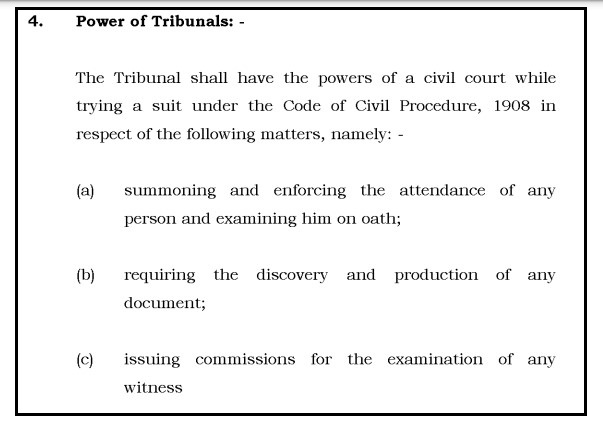
The 2019 amendments to the Foreigners (Tribunals) Order, 1964 empowered even district magistrates in all States and Union Territories to set up tribunals to decide whether a person staying illegally in India is a foreigner or not.
Above mentioned legislations provides for penal action against those who are illegally staying in India. Citing the above-mentioned legal provisions, a 2017 circular by the Ministry of Home Affairs to all the chief secretaries asked to detain and deport the foreign nationals staying illegally in the country can be viewed here.
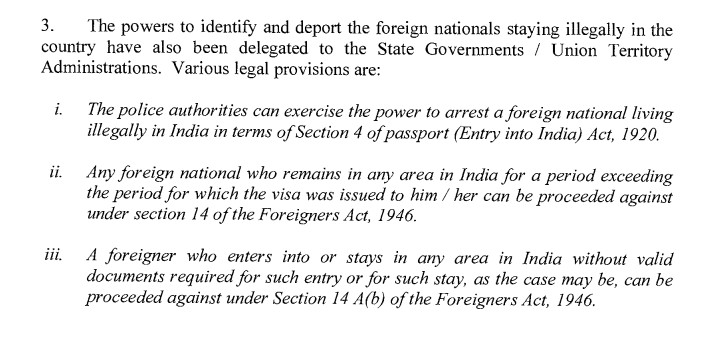
There are multiple instances wherein illegal migrants are detained and subjected to penal consequences under the above-mentioned legislations in various cities of India. News articles related to these can be read here and here. Thus, it can be concluded that there are legislations in place to deal with illegal migrants and instances of subjecting these illegal migrants to penal consequences.
To sum it up, Legislations framed to check illegal migration into the country provide for penal action against those found guilty.


